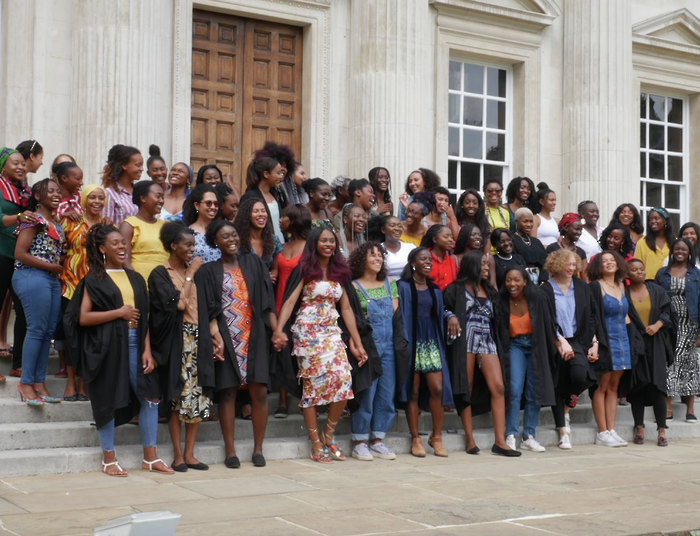BME representation in college politics falls short of University average
Only three of the 29 undergraduate colleges are led by a BME JCR president

Just three Cambridge college JCRs have BME presidents, pointing to an underrepresentation of BME students in college politics.
Only Gonville & Caius, St Catharine’s and Murray Edwards JCRs have BME presidents while the other 26 undergraduate college JCRs are all led by white students. BME students make up, on average, 21.5% of the University’s intake for the past three years, but they remain just 10% of JCR Presidents.
This comes in stark contrast to Oxford, where it was recently announced that 41% of colleges with JCRs will have a BME JCR president next term.
Muhammed Khan, St Catharine’s JCR president, spoke to Varsity about the disparity, explaining that it may arise from the differences in the number of BME students at different colleges.
He highlighted that he felt BME students were represented well by CUSU and by JCR BME officers, but that among the University staff, “there’s a lot more work to be done”. At present only 12% of staff at the University of Cambridge are BME, which is below the Russell Group average.
The goal, Khan believes, should be “representation commensurate with the demographics of the student body.” However, he argued that this relied on more BME people running for JCR president. “I'm not really sure how to do that as anyone is free to stand for election”, he added.
Reiss Akhtar, the Gonville & Caius JCR President, told Varsity, that “in an ideal world a BME student will see positions of power as roles to be applied to irrespective of sexuality, race and background.”
“Especially as a young BME woman, it can feel as if people have three counts on which to try to patronise me”
“Of course, we do not live in an ideal world and I think the route to this is very complex.” Akhtar suggested that the lack of BME representation was because “the structures in place do not do enough to make themselves accessible”, thus prompting a low number of BME applicants to positions such as JCR presidents.
Currently, Cambridge falls below the national average of 24.7% in the proportion of BME students who are BME. Although Oxford lags behind Cambridge in terms of BME access, with only 17.9% of its 2017 intake identifying as BME, it strides ahead in terms of BME representation in college student politics, with 41% of its colleges having BME presidents, the University seems to be faring better the Cambridge in terms of representation in college-level student politics.
Akhtar thinks “it is not as much about the number of BME students in positions of power as it is the number of BME candidates”. He added that he “would like to stress to any BME student reading this that you are just as capable of change as a non-BME student. This must be recognised whether we have one BME JCR president or twenty-four.”
The Murray Edwards JCR President, Lylaah Bhalerao, agreed, saying “I think that a lot of the time, BME students don’t feel that student politics is the place for them, because it has been dominated by the white middle class for so long”.
Bhalerao said she felt BME students worry about how they will be treated by university staff and fellows, or feel that “they must stick to designated BME roles or issues” rather than taking up leadership roles.
Khan said that he does not feel being BME has affected his experience as president, but that it has impacted the policies he has pushed for, including a particular emphasis on access. At his college, policies he has worked to introduce include a reward system for students who go to schools to give Oxbridge admissions talks, and improved admissions resources for each subject.
Bhalerao said she has found herself in some “uncomfortable situations” during her time as president. “Especially as a young BME woman, it can feel as if people have three counts on which to try to patronise me, and that thought is something I have to confront whenever I walk into a room. I have to admit that there have been times when I've felt too anxious to speak up if someone has said something questionable.”
She added that there have also been times where she has been questioned or dismissed for raising race issues. “I've learnt that it's vital not to let comments like that get to you, and to respond rationally so as not to let people de-legitimise your views.”
However, on the whole Bhalerao would say that being BME has affected her experience positively. “Senior staff in College have been very receptive to my ideas and very supportive in turning them into reality”, she added.
“If we want to be a progressive society then we need to make the most of the vast talent we have in our different communities, and this should be reflected on the level of student politics. Those of us in positions of leadership have to be role models and encourage others to take the baton after us and get involved.”
 News / Caius mourns its tree-mendous loss23 December 2025
News / Caius mourns its tree-mendous loss23 December 2025 News / Clare Hall spent over £500k opposing busway 24 December 2025
News / Clare Hall spent over £500k opposing busway 24 December 2025 Comment / The ‘class’ of Cambridge24 December 2025
Comment / The ‘class’ of Cambridge24 December 2025 Comment / Yes, I’m brown – but I have more important things to say22 December 2025
Comment / Yes, I’m brown – but I have more important things to say22 December 2025 Interviews / Politics, your own way: Tilly Middlehurst on speaking out21 December 2025
Interviews / Politics, your own way: Tilly Middlehurst on speaking out21 December 2025








